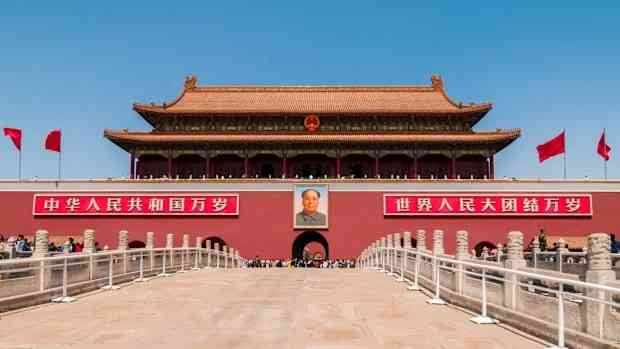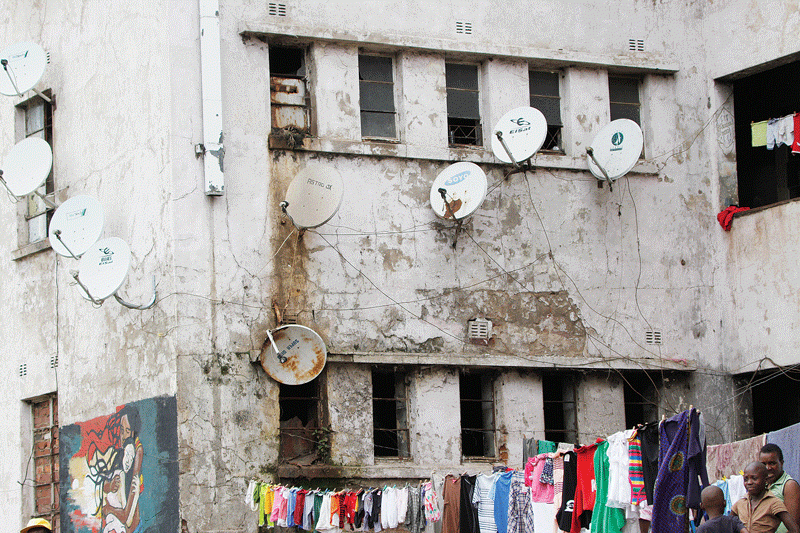
The recent pronouncement by United States President Donald Trump threatening military intervention in Nigeria under the pretext of a "Christian genocide," is not a deviation from established imperial doctrine; it is a blatant declaration of neo-colonial war masked in religious fervour.
From a Pan-Africanist perspective, this move must be understood not as an act of humanitarian concern, but as a calculated manoeuvre by the US war machine operating through its Department of Defence (often euphemistically called the Department of War) and its Africa Command (Africom) to secure resource dominance, maintain strategic regional hegemony, and dismantle any nascent African sovereignty that looks eastward.
The assertion that the US will go in ‘guns-a-blazing’ is a stark reminder that the chains of colonialism have merely been recast as the shackles of neo-colonialism.
The US war machine is escalating its war against Africa, and the oil-producing giant, Nigeria, is its latest target.
The US president, on his Truth Social platform, posted that Nigeria has now been designated a country of ‘particular concern’ and if the Tinubu administration does not deal with the genocide against Christians, the US will go in ‘guns-a-blazing’ to crush the Islamic terrorists.
Not only is it surreal that we are now in an era where governments promote war policy over the internet, but the government in question, which claims to be concerned with a Christian genocide in an African country, has been actively supporting genocide against Palestinians, is mediating sham peace deals in the DRC, and threatening war against Venezuela.
This staggering hypocrisy is precisely why Africa and the Global South must decisively pivot away from the Washington Consensus towards a governance framework rooted in mutual respect, sovereignty, and development.
This framework is unequivocally offered by the People's Republic of China, specifically through President Xi Jinping’s vision for a Community with a Shared Future for Mankind, underpinned by the Global Development Initiative (GDI) and the Global Security Initiative (GSI).
- Letter from America: Is former president Donald Trump a hero or villain?
- Chidzivo, Tarakinyu clinch Kabag honours
- Letter from America: Is former president Donald Trump a hero or villain?
- The Fiddler: Is honesty the best policy?
Keep Reading
These initiatives represent the most viable, respectful, and necessary alternative for a truly sovereign and equitable global order.
Africom and the doctrine of militarised neo-colonialism
The threat of armed intervention in Nigeria, cloaked in humanitarian rhetoric, serves as a textbook example of the enduring imperial doctrine that has plagued Africa for centuries.
This doctrine posits that African nations lack the agency to manage their own affairs and resources, thereby requiring "external management" historically by colonial powers, and now by the US through its military apparatus, Africom.
Africom, established in 2007, was sold to the continent as a structure for stability and capacity building.
However, African leaders and civil society have long resisted its presence, viewing it as a foreign military occupation designed to advance narrowly defined US geopolitical interests, often destabilising rather than securing the continent.
Regional bodies like the Southern African Development Community (Sadc) and the Northern African Community of Sahel-Saharan States (CEN-SAD) have historically and explicitly rejected the idea of hosting American military bases.
Nigeria itself, under previous administrations, unequivocally denounced the possibility of American troops being based in West Africa, recognising that foreign military presence only invites further conflict and undermines national sovereignty.
The current posturing over Nigeria’s internal security challenges is a cynical ploy to justify the expansion of the US military footprint in a strategically vital, oil-rich nation.
By manufacturing a moral justification, the US seeks to insert its ‘Department of War’ directly into a sovereign nation's domestic security affairs, securing access to Nigerian oil and neutralising any emerging alignment with non-Western partners, particularly China.
This is not assistance; it is the protection of commercial and strategic interests under the guise of the 'White Man’s Burden, ' a modern reiteration of the civilising mission that justified the original Scramble for Africa.
The US, which weaponises sanctions, promotes colour revolutions, and sustains occupations across the globe, is the last entity qualified to lecture Africa on internal governance or human rights.
The blatant hypocrisy surrounding their selective outrage supporting conflict in one region while condemning it in another exposes the cynical, interest-driven nature of Western hegemony.
The Global Development Initiative (GDI): A Partnership for sovereignty
In stark contrast to the West’s conditional aid and militarised security, China’s approach, formalised under the Global Development Initiative (GDI), is rooted in the principle of non-interference and development as a priority.
The GDI, proposed by President Xi Jinping in 2021, aims to accelerate the implementation of the UN 2030 Agenda for Sustainable Development by focusing on a people-centred approach and benefits for all.
The fundamental difference lies in philosophy. For decades, Western aid has been inextricably linked to structural adjustment programmes (SAPs), demanding privatisation, austerity, and political reforms that dismantle the state’s developmental capacity and enforce a neo-liberal economic model.
This is conditional governance, designed to keep African economies structurally dependent.
China’s model, however, offers a partnership free from political preconditions, recognising that African nations must choose their own path to prosperity.
This respects the hard-won sovereignty of the continent.
Evidence of this commitment is readily apparent across the continent, particularly in areas neglected by Western capital. In terms of transport connectivity and economic corridors, projects like the Addis Ababa-Djibouti Railway and the Mombasa-Nairobi Standard Gauge Railway (SGR) in East Africa stand as monumental testaments to Chinese commitment.
These initiatives, financed and built by Chinese expertise, have dramatically reduced freight costs, boosted intra-regional trade, and directly facilitated industrial growth, effectively addressing the infrastructure deficit that has been a major bottleneck to Africa's own continental free trade aspirations.
Energy security is another priority; China has been pivotal in harnessing Africa's energy potential, and projects like the Bui Dam in Ghana and its financial support for the Grand Ethiopian Renaissance Dam (GERD) demonstrate a focus on large-scale hydroelectric power, which is essential for industrialisation and energy independence, something Western capital often avoided due to geopolitical sensitivities or low short-term returns.
Furthermore, regarding digital infrastructure, through companies like Huawei and ZTE, China has rapidly and affordably built the digital spine of modern Africa, laying fibre optic cables and establishing telecommunications networks in remote areas, a step vital for the digital economy that bridges the North-South digital gap without the intrusive security demands often imposed by Western tech providers.
Finally, in fiscal matters, China has consistently shown a willingness to address African debt through bilateral and multilateral channels, notably being a major contributor to the G20 Debt Service Suspension Initiative, and through the Focac framework, which continuously works to eliminate tariff barriers for African agricultural products, boosting exports and promoting a more equitable trade balance a stark contrast to the contentious nature and political conditions surrounding agreements like the US's African Growth and Opportunity Act (Agoa).
The GDI is a declaration that the Global South must prioritise its material foundation economic growth as the basis for all other advancements, including security and political stability.
The Global Security Initiative (GSI): True security through cooperation
Security, under the Western paradigm, means domination: a constant state of low-intensity conflict managed by external powers (Africom) to maintain the status quo and ensure resource extraction flows smoothly.
The Global Security Initiative (GSI), proposed by President Xi Jinping in 2022, offers a revolutionary alternative: the vision of common, comprehensive, cooperative, and sustainable security.
The GSI unequivocally rejects the zero-sum game mentality, the formation of exclusive military blocs, and the pursuit of security at the expense of others precisely the ethos of Nato expansionism and Africom’s operation.
The core principles of the GSI guide this cooperative vision, starting with the mandated respect for the sovereignty and territorial integrity of all countries, which is the direct antithesis of the US threat to invade Nigeria.
Furthermore, it stresses non-interference, achieved by abiding by the purposes and principles of the UN Charter and rejecting internal meddling.
Finally, the GSI upholds sustainable security, recognising that true, lasting security must be built on sustainable development, thereby linking the GSI directly to the GDI.
For African nations, the GSI translates into practical, non-militarised security cooperation, focusing on capacity building rather than dependency.
China is increasingly engaged in training African military personnel, supporting peacekeeping operations, and providing assistance for non-traditional security challenges like counter-terrorism and maritime security, but crucially, without establishing the large, permanent, and politically controversial bases that mark the US presence.
The message is clear: the only way to safeguard African security is to end the economic vulnerability and political instability that predatory powers like the US exploit.
The military solution offered by the US is a poison that guarantees perpetual instability; the development and cooperative security solution offered by China is the medicine for lasting peace and self-determination.
Seizing the multipolar moment
The choice before Africa and the Global South is not between competing ideologies, but between models of global governance. On one side stands the dying relic of unipolarity, represented by the US, whose actions culminating in the direct threat against Nigeria reveal a persistent, resource-driven, and militarized neo-colonialism.
This model substitutes genuine partnership with conditional dependence, and sovereignty with subversion, always prioritising the interests of the hegemon.
On the other side stands the emerging multipolar world, led by China, whose GDI and GSI offer a viable, dignified, and transformative path forward.
Rooted in the Five Principles of Peaceful Coexistence and enshrined in the concept of a Community with a Shared Future, this approach prioritises sovereign development, mutual learning, and cooperative security.
The success of the Addis Ababa-Djibouti Railway, the digital revolution across the continent, and the respect for non-interference, which allows African leaders to focus on nation-building without fear of regime change, are the dividends of aligning with this new global vision.
Africa must, with renewed Pan-Africanist fervour, seize this moment to solidify its own agency. By working with partners like China, who see the continent not as a prize to be exploited but as an equal co-architect of a new, more just world order, Africa can finally dismantle the shackles of neo-colonialism and deliver the true, self-determined prosperity that its people deserve.
The pivot east is not merely a strategic move; it is a fundamental act of political and economic decolonisation.
*The author, Mafa Kwanisai Mafa, is a Pan-Africanist political commentator based in Gweru, Zimbabwe.











